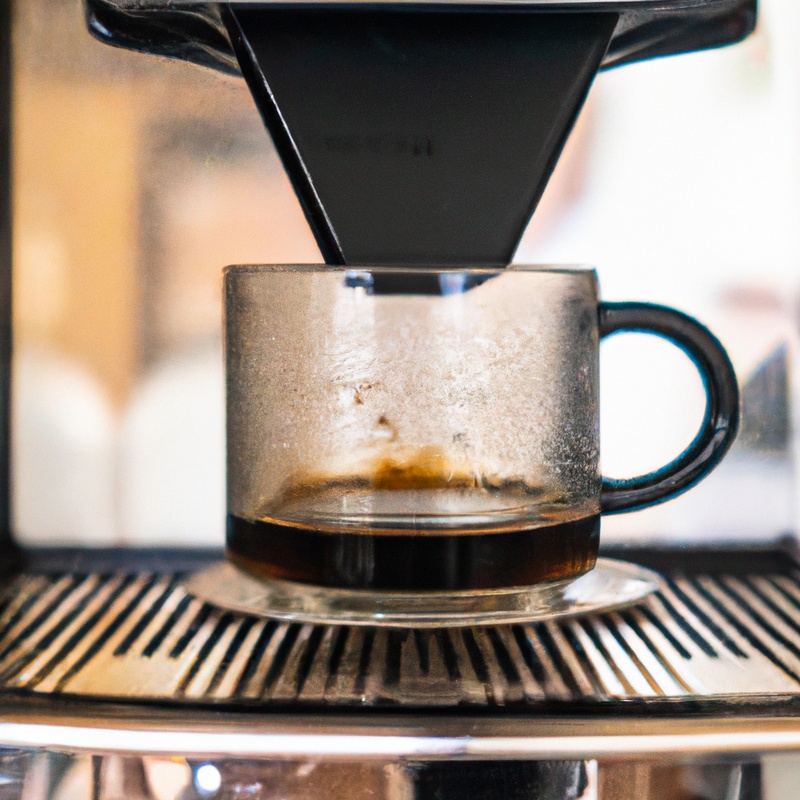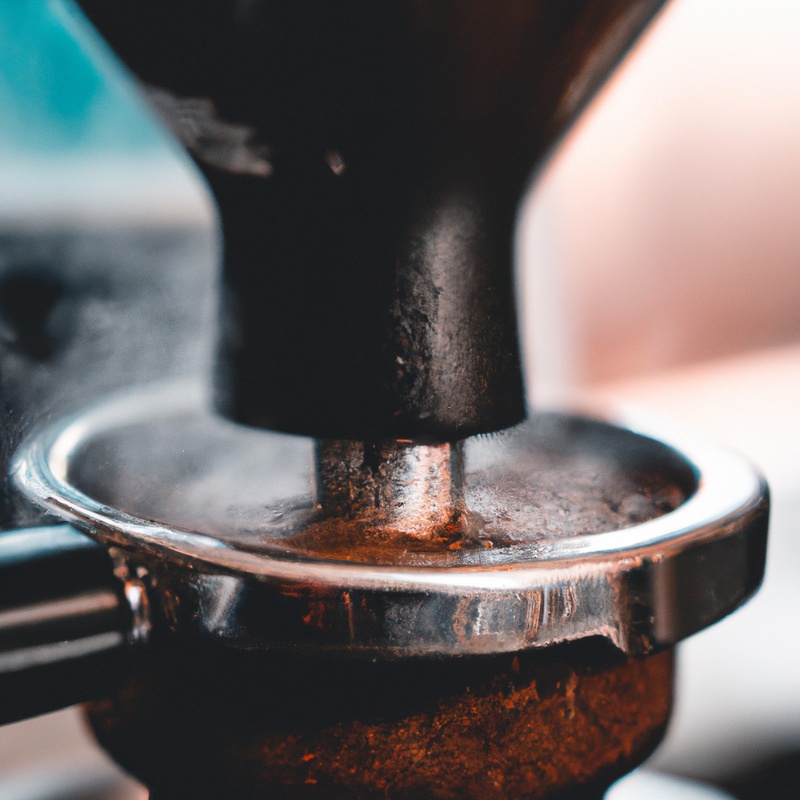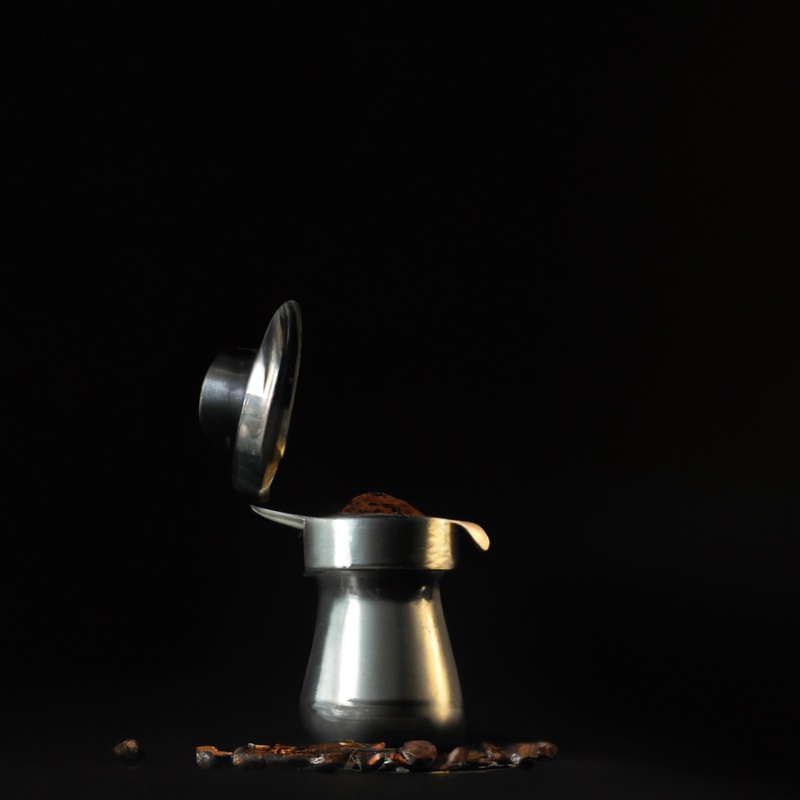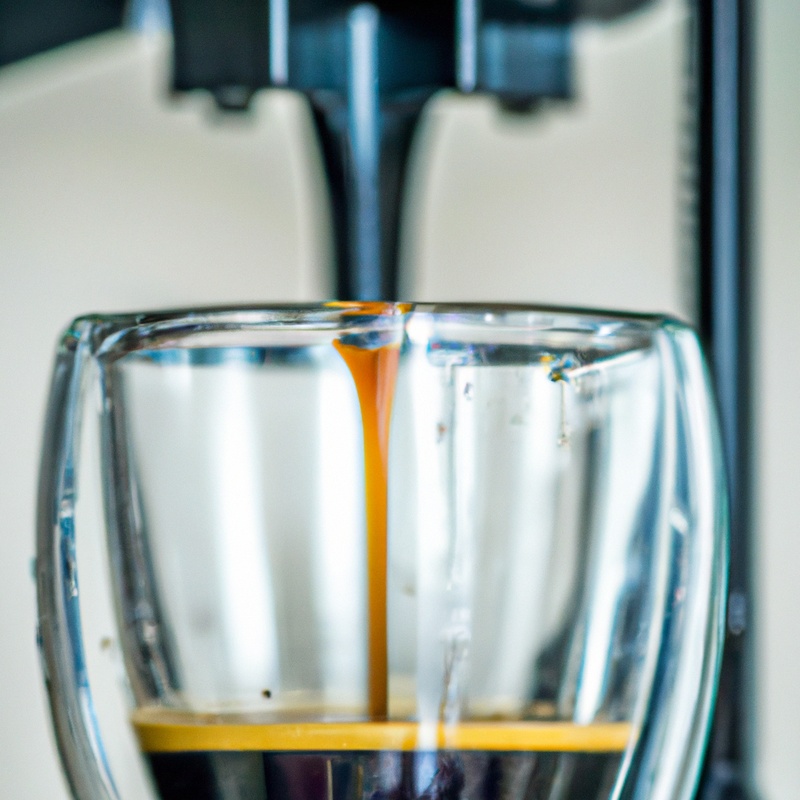Key Takeaways:
- The brewing time for coffee depends on the brewing method used.
- Typically, drip coffee takes around 5-6 minutes to brew.
- Espresso takes about 25-30 seconds to brew.
- French press coffee can take around 4-5 minutes to brew.
Are you someone who can’t start your day without a cup of freshly brewed coffee?
Have you ever wondered how long it actually takes for your beloved coffee to go from beans to your mug?
Well, get ready to dive into the fascinating world of coffee brewing! In this article, we’ll break down the step-by-step process of brewing coffee, from grinding the beans to choosing the right brewing method.
We’ll also explore the factors that affect brewing time and answer some frequently asked questions about this beloved morning ritual.
So grab your favorite mug and let’s start brewing!
| Coffee Brewing Method | Brew Time | |
|---|---|---|
| Minimum Time | Maximum Time | |
| French Press | 4 minutes | 6 minutes |
| Drip Coffee | 5 minutes | 8 minutes |
| Espresso | 20 seconds | 30 seconds |
| Aeropress | 1 minute | 2 minutes |
| Pour Over | 3 minutes | 4 minutes |
Understanding the Coffee Brewing Process
The coffee brewing process involves grinding the beans, choosing a brewing method, measuring ratios, heating water, and allowing for the right extraction time.
Step 1: Grinding the Coffee Beans
Grinding the coffee beans is the first step to brewing a great cup of coffee. It helps to extract all the delicious flavors and aromas from the beans.
The grind size is important and varies depending on the brewing method you choose.
For example, a coarse grind works well for French press, while espresso requires a very fine grind. Experiment with different grind sizes to find the perfect one for your taste.
Remember to use a good quality burr grinder for the best results.

Step 2: Choosing the Coffee Brewing Method
Choosing the coffee brewing method is all about personal preference. There are several methods to choose from, each with its own unique set of qualities.
French press brewing gives you a rich and full-bodied cup, while pour-over brewing provides a clean and bright taste.
Espresso machines are great for those who love strong and concentrated flavors. AeroPress brewing is quick and convenient, perfect for on-the-go.
Consider your taste preferences, time constraints, and desired brewing experience when deciding on a method.
Experiment and find the one that suits you best!

Step 3: Measuring the Coffee and Water Ratio
Step 3: Measuring the Coffee and Water Ratio To achieve a perfect cup of coffee, the ratio of coffee grounds to water is essential.
A common guideline is to use 1 to 2 tablespoons of coffee per 6 ounces of water.
However, personal preference plays a role, so adjust accordingly.
Experiment to find your preferred strength and taste.
Remember, it’s all about finding the right balance to suit your taste buds.

Step 4: Heat the Water to the Right Temperature
To ensure the perfect brew, heating the water to the right temperature is essential.
The ideal temperature for brewing coffee is between 195°F (90°C) and 205°F (96°C).
If the water is too cold, it won’t extract the flavors properly from the coffee grounds.
On the other hand, if it’s too hot, it can result in a bitter taste.
Aim for a temperature within this range for the best brewing results.
You can use a kettle with a built-in thermometer or a simple kitchen thermometer to check the water temperature.
Step 5: Brewing Time and Extraction
Step 5: Brewing Time and Extraction The brewing time and extraction process are crucial for getting the perfect cup of coffee. The ideal brewing time can vary depending on factors like the brewing method and personal preference.
For a classic drip coffee maker, it usually takes around 4 to 6 minutes.
French press coffee, on the other hand, may need around 3 to 5 minutes. The goal is to extract the optimum flavor from the coffee grounds without over or under-extracting.
Experiment with different brewing times to find the taste that suits you best.
Remember to adjust the grind size and coffee-to-water ratio accordingly for better results.
Factors that Affect Brewing Time
Factors that affect brewing time can include the grind size of the coffee beans, the water temperature, and the brewing method. Finely ground coffee will brew faster than coarse ground coffee, while hotter water will extract flavors more quickly.
Different brewing methods, such as drip coffee or French press, also have varying brewing times.
Additionally, the freshness and quality of the coffee beans can impact brewing time. Experimenting with these factors can help you achieve your desired brewing time and flavor profile.
How Long Does it Take for Different Brewing Methods?
Different brewing methods have different brewing times. Here’s a breakdown of some popular brewing methods:
- Pour-over: It typically takes around 3-4 minutes to brew a cup of coffee using the pour-over method. This method involves manually pouring hot water over coffee grounds in a filter.
- French press: The French press brewing method takes around 4-5 minutes. Coarsely ground coffee is steeped in hot water, and then a plunger is used to separate the coffee grounds from the brewed coffee.
- Espresso: Brewing espresso takes approximately 20-30 seconds. This method involves forcing hot water through finely ground coffee under high pressure, resulting in a concentrated and intense flavor.
- AeroPress: The AeroPress brewing method is relatively quick and takes about 1-2 minutes. It uses a combination of pressure and immersion to extract flavors from coffee grounds.
- Cold brew: Cold brewing coffee is a slow process that takes around 12-24 hours. Coffee grounds are steeped in cold water for an extended period, resulting in a smooth, low-acid coffee concentrate.
Remember, these times are estimates and can vary based on personal preferences and the specific brewing equipment used. Experimentation and adjusting the brewing time can help you find the perfect cup of coffee for your taste.
Frequently Asked Questions about Coffee Brewing Time
Sure! Here are some frequently asked questions about coffee brewing time:
1. How long does it take to brew coffee with a drip machine?
Typically, it takes about 5-7 minutes for a drip coffee machine to brew a full pot of coffee.
2. How long should I let my French press coffee brew?
For French press brewing, it’s recommended to let the coffee steep for around 4-5 minutes before pressing the plunger.
3. How long does it take to brew coffee using a pour-over method?
With pour-over methods like the Hario V60 or Chemex, the brewing time can vary depending on factors like grind size and coffee-to-water ratio.
Generally, it takes about 3-4 minutes.
4. How long does it take to brew espresso?
Espresso machines use high pressure and hot water to extract coffee quickly.
The brewing time for a shot of espresso is usually between 25-30 seconds.
Remember, these are just general guidelines.
Adjusting the variables such as grind size, water temperature, and coffee-to-water ratio can affect your brewing time.
Experimenting and finding the perfect brewing time for your taste is part of the fun!
Does the Type of Coffee Bean Affect Brewing Time?
The type of coffee bean can indeed affect the brewing time. I’ll explain how in the following sections.
Light vs. Dark Roast: Does it Make a Difference?
Light vs.
Dark Roast: Does it Make a Difference?
The roast level of coffee beans does make a difference in terms of flavor profile.
Light roast coffee has a brighter, more acidic taste with subtle flavors, while dark roast coffee is bolder, less acidic, and has a smoky taste.
Light roast beans retain more of their natural characteristics, while dark roast beans have a more intense, roasted flavor.
Ultimately, it comes down to personal preference.
Give both a try and see which one you prefer!
Arabica vs. Robusta: Impact on Brewing Time
Arabica and Robusta coffee beans have a slight impact on brewing time. Arabica beans tend to brew faster compared to Robusta beans.
This is because Arabica beans have a lower density and larger surface area, allowing for quicker extraction of flavors.
On the other hand, Robusta beans have a higher density, which slows down the brewing process slightly. However, the difference in brewing time between the two types of beans is minimal and may not be noticeable in everyday brewing.
Factors to Consider when Brewing Specialty Coffee
When brewing specialty coffee, there are a few factors to consider.
Firstly, the grind size plays a significant role in extracting the flavors.
A finer grind is generally used for espresso, while a coarser grind is suitable for pour-over methods.
Secondly, the water quality is crucial.
It’s recommended to use filtered or bottled water for a better-tasting brew.
Lastly, the brew time and temperature should be carefully monitored to achieve the desired flavor profile.
Tips to Optimize Coffee Brewing Time
To optimize coffee brewing time, consider the grind size and water quality while preheating and properly cleaning the coffee maker.
Grind Size: Choosing the Right Consistency
When it comes to brewing coffee, grind size plays a key role in determining the flavor and strength of your cup. Choosing the right consistency is important for achieving the best results.
Here are some tips to help you select the perfect grind size:
- For a coarse grind, ideal for French press or cold brew, aim for a consistency similar to sea salt. This allows for a longer extraction time and a bold, robust flavor.
- If you’re using a drip coffee maker or a pour-over method, a medium grind is recommended. It should be slightly finer than sea salt but coarser than table salt. This ensures a balanced extraction.
- For espresso lovers, a fine grind is essential. It should resemble fine sugar or powder. This facilitates a quick extraction and results in a concentrated, rich flavor.
Remember, adjusting the grind size can greatly impact the taste of your coffee. Experiment with different levels of coarseness to find your perfect brew.
Water Quality: Why It Matters for Brewing Time
Water quality plays a significant role in determining the brewing time of coffee.
Poor water quality, such as hard water or water with impurities, can affect the extraction process and slow down the brewing time.
High mineral content in water can also cause scaling and mineral deposits in coffee machines, further affecting the brewing time.
On the other hand, using filtered or purified water can help optimize the brewing time and improve the taste of your coffee.
So, make sure to pay attention to the quality of water you use for brewing.
Preheating the Coffee Maker: Is it Necessary?
Preheating the coffee maker before brewing is not necessary, but it can make a difference in the quality of your coffee. When you preheat the coffee maker, it helps to maintain a consistent temperature throughout the brewing process.
This can result in a better extraction and an improved flavor profile.
However, if you’re in a hurry or don’t have time to preheat, it won’t ruin your coffee. It’s just a little extra step that can enhance your brewing experience.
Proper Cleaning for Optimal Brewing Time
To ensure optimal brewing time for your coffee, proper cleaning is essential. Here’s why:
- Clean equipment: Regularly clean your coffee maker, including the brew basket and carafe. Residue from previous brews can affect the flavor and brewing time of your coffee.
- Descale: Hard water deposits can build up in your coffee maker, leading to slower brewing times. Descaling your machine helps remove these deposits, ensuring efficient brewing.
- Replace filters: If your coffee maker has a filter, make sure to replace it regularly. A clogged filter can slow down the brewing process and affect the taste of your coffee.
- Keep it dry: After cleaning, make sure all parts are thoroughly dry before using your coffee maker again. Moisture can impact brewing time and result in weaker coffee.
Final Verdict
Understanding the coffee brewing process is essential for achieving the perfect cup of joe.
From grinding the beans to choosing the brewing method, measuring the coffee and water ratio, and heating the water to the correct temperature, each step plays a crucial role in determining the brewing time and extraction.
Factors such as grind size and water quality also impact the brewing time.
Additionally, the type of coffee bean, whether it’s light or dark roast, and Arabica or Robusta, can influence the brewing time.
By following tips such as choosing the right grind size, ensuring water quality, preheating the coffee maker, and proper cleaning, you can optimize the brewing time and enhance the flavor of your coffee.
Remember, coffee brewing is an art, and with practice and attention to detail, you’ll be able to find the perfect balance and create a delicious cup of coffee every time.
So, take your time, experiment, and enjoy the journey to the perfect brew!
